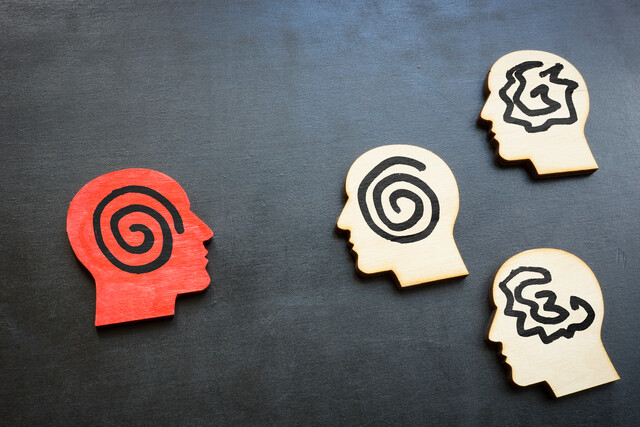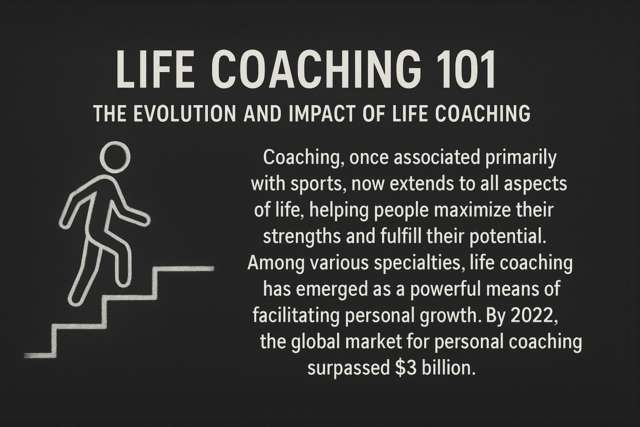Confidence is a direct result of learning to know yourself. The more you know yourself, the more confident you will become.
Why do you get certain feelings from some people and different feelings from others? You "pick up on their vibes," as people used to say in the 1970s. In other words, your energy body has the power to perceive a lot about someone else's. You know instantly when someone makes you feel comfortable, nervous, warm, or repelled. Likewise, if you feel nervous and uncomfortable around certain people, they instinctively know it. Consider the primal reaction of a dog when it senses anger, danger, fear, or bad intentions. Dogs are energy-sensitive. We have those same instincts. They may not be canine-sharp, but we clearly sense fear and anger in others, and they sense it in us. You do not need to speak in order for others to detect that you are feeling insecure.
Scientists now know that human beings, as well as everything else in our world, are composed of specifically arranged amalgamations of vibrating electrical energy that we perceive as physicality. The electrical body that vibrates within, through, and around us can even be seen with special equipment. We are composed entirely of energy, regardless of whether we can see or feel it. If we were able to see our flesh down at the most minute level, we would see only whirling units of energy, nothing that we consider physical at all.
The dawning knowledge of this truth allowed us to develop television, fax machines, and other technology that recognized the true energetic nature of matter.
How is this related to confidence? When you find yourself in situations that trigger your insecurities, others can sense your fear. Because of the nature of the human ego, some will even prey upon the weakness they perceive in you, which even further dissolves your confidence. Your knees may become weak, your voice may become scratchy, you may be at a loss for words or say something you do not intend to say. People in more powerful positions or others who seem to sap your strength are able to sense your wilting spirit. Of course, not everyone will take advantage of your fears, but it is obvious to you, and to them, which of you has the upper hand when you are feeling weak. How can you prepare for these moments?
Grounding: Because fear, dread, and a lack of confidence cause us to vibrate at a different frequency, it is important to calm those energies and draw some stronger, more purified energy into ourselves. Grounding your energy is a practice that will help you feel more solid in shaky situations.
Electricians know that grounding refers to the flow of electrons into the earth. Any process that might assist self-knowledge is enhanced by a quick grounding session. You can practice this before repeating your affirmations, as well as prior to entering your workplace, a social gathering, or any other situation that threatens to shake your self-confidence.
The following is a widely accepted method of grounding.
Stand with your feet slightly apart, aligned with your shoulders. Your knees should not be locked. Make your chin level with the ground, feel the straightness of your spine, and relax your shoulders to let your arms hang at your sides. When you feel the weight of your body balanced evenly on all parts of the bottoms of both feet, close your eyes and feel your strong stability, something like a large tree. Imagine your body's energy growing beautiful long roots that are moving and reaching far into the ground, traveling toward the center of the earth, where pure light energy is swirling. Let your body's energetic roots combine with the earth's, feeling the strengthening and stabilizing force of combining the two.
Now, allow the earth's powerful energy to travel back up through your roots, up through your spine and finally surround and swirl in every cell of your entire being. See the light energy coming back down through the top of your head and filling you completely with light.
As you practice grounding, you can visualize your fear, anger, hatred, resentment, and other negative energies as dark areas in your energy field. Let them slide down into the earth through your "roots," where they will dissolve and transmute into light energy.
You may not have a spiritual belief or practice present in your life, but exercises like grounding are accepted in the field of energy medicine, as well as in spiritual practice. When you fully accept that we are composed of pure energy, you can congratulate yourself on understanding now what we will all know in the future about the nature of our existence.
Affirmation: I am composed of pure light energy. Nothing has the power to make me any less than what I truly am. I am equal to everything and everyone around me. I am an integral part of this earth. My awareness of the nature of my existence makes me strong and capable.
Projecting energy:
In social circumstances of any kind, if you feel jealousy, fear authority, or hold other critical or judgmental thoughts about others, your own confidence will take a nose dive. Believe it or not, something that forces self-esteem into the depths and makes us feel terribly insecure is the fact that we forget to love. We become so focused on our own pain and fear, that we enter social situations totally focused on ourselves. Perhaps it takes years of transcendent learning for us to view the entire universe with unconditional love; however, if you are able to fit the following little trick into your practice, you will find that it changes how you feel around others.
Exercise: Project your light energy to others as an offering. When you are with people, whether a single person or a large crowd, you can practice projecting your energy to and through them. Doing this consistently will strengthen your confidence and make you so much more comfortable with people as you observe their reactions.
By yourself, breathe deeply into the belly for a few minutes, filling up your chest and letting the breath out slowly. Repeat this several times, feeling your body relax and your energy expand. Now repeat your affirmations, imagining your light energy growing larger and expanding, filling the space around you and through you. Now move to the room or situation where you might normally be negatively triggered, taking this light body of energy along with you. Feel your bright, vibrating energy thrusting toward, through, and beyond the people in the room. Try to fill the room with your light.
If you begin to practice this one small act, you will find people responding to you in a way you never have experienced before. The act of freely giving to others some of what you naturally possess is like magic.
Affirmation: I am a beautiful, energetic being. I offer my light energy to others and they respond to me with love and positive vibrational energy.
FOCUS
One thing is very clear: Our habits control our lives and our success. If you truly want to gain inner confidence, it is important to recognize the bad habits that are holding you back, raise them to the top of your priority list, and begin to intentionally and purposefully practice methods for changing. It is achievable, but it will not happen by itself.
Persistent self-talk, of course, is a bad habit. But we can also accidentally lock ourselves into patterns of insecurity just because it has become a habit to do so. If you experience the same response every time to the same kinds of situations, interactions, or challenges, notice what you habitually tell yourself at these times.
In Jack Canfield's famous book, Power of Focus, he mentions that changing a habit takes about 21 days, or three to four weeks. However, establishing dominant positive self-talk may take a bit longer, since many of our subconscious messages began repeating themselves years ago. Instead, make a conscious decision to take whatever time you may need to really concentrate on building your confidence.
One of the most embarrassing and confidence-busting events often occurs when we are trying to deliver information, whether in formal speech or casual conversation. Talking to others when we lack confidence can cause us to become distracted, confused, or to stumble on our words, forget what we were going to say, or doubt that what we have to say has value. Communication can be one of the most daunting aspects of not feeling confident.
Correcting our negative reactions around communication, as well as other triggers, takes some predetermination and focus.
Before you go to work, before you attend a meeting or any other situation that might cause stress and strain on your confidence, give yourself a few minutes to sit down, focus, and think.
2) Make a list of all of the points you would like to make in the upcoming conversation or presentation.
3) Decide how you will feel when you deliver your information; make the decision to use humor, logic, or whatever seems appropriate in the setting.
4) Calmly anticipate the discussions that may take place, the kinds of comments that might be made, and make a list of how you plan to respond to them. Imagine your calm, positive response to negative comments. If you think this through carefully, you will be prepared for any surprises that might take you off guard.
5) If you are entering a situation wherein you are the messenger, it is even more vital to provide yourself with a period of time spent focusing on learning and understanding the material you plan to cover. If there are areas of expertise you are not expected to have, be prepared to say you do not know.
6) Repeat your affirmations.
Once you are comfortable with the possible triggers, and you have a plan. You may decide to also do the energy projection exercise as well, but remember: Practice is the key. Think of body-building: The repetitions are more important than the size of the weights. Do not overwhelm yourself, but know that you will conquer these uneasy feelings of insecurity if you continue to use the tools.
The magic of these tools is based on repetition. Changing habits is a process of repetition. Your bad habits, in this case, are your negative thoughts and fears. The more you expose yourself to potentially uncomfortable situations, the more opportunities you will have to practice your new ideas. Just stay focused.
When you are going to be involved in situations where communications are apt to trigger your insecurities, it is important to think about what the triggers are, what self-talk they might be attached to, and the positive affirmations that can replace them. Try the following exercise:
|
New Journal Page |
Use these as examples. |
|
TRIGGER |
NEW THOUGHT |
|
Bob always puts me down in front of others. |
I smile at Bob from my heart, and extend warm energy toward him. I am calm, smart, and lovable. My confidence is strong as granite. |
|
A big crowd makes me nervous. |
People are friendly. I am a warm person. I attract positive energy. I feel my calm, bright energy radiating through my body and I enjoy projecting out to the crowd. |
|
I sometimes cannot think of something appropriate to say. |
My energy is secure and grounded and calmly swirls in and through my brain. My brain always remains steady and engaged when I am with others. I am clearly focused on what I can give to others in conversation, and I project my own powerful energy toward and through them. |
Choose one major trigger at a time, and develop your affirmation. Then, as often as you possibly can, repeat your affirmation, aloud or silently. If you have gotten to the core of the trigger and its overriding message, before long you will notice your responses changing. You also will notice that when you project light and energy toward people, they will be inspired to send it back to you. Thus, it is very helpful to concentrate on these ideas so that you can easily put them into practice when it really counts.
If you can learn to implement these few ideas into your daily life practices, you can move on to other larger and more exciting goals and dreams, knowing that you are giving yourself the time to work out the negative blocks that may have kept you from achieving what you want.
Setting aside time: When you consider the opportunities you may have missed, the time you have spent feeling sad, worried, confused, and afraid because of a lack of confidence, it seems that taking a specific amount of time every day to work on this challenge would come naturally. Unfortunately, many people do not allow themselves the gift of a simple block of time to do nothing but think, write, and deal with the issues that are plaguing them. Self-confidence is a serious and life-affecting attribute. If you are lacking confidence, consider the time you have lost as you have grappled with the effects of it.
Procrastination: A deadly habit that can have devastating effects on confidence is that of procrastination. Perhaps you feel that procrastinating only affects the logistics of your life. Habitually putting off tasks and responsibilities and then rationalizing or justifying the reasons for not having completed them contributes to a poor self-image and wears on self-respect.
Habitual procrastination usually is associated with fear, perfectionist tendencies, or some form of hostility, all of which take a serious toll on self-confidence. Examine your reasons for procrastinating: Are you afraid of failing? Are you afraid your actions will not be perfect? Are you trying to get back at someone in a passively aggressive way or take out your anger on someone?
Staying tuned into the moment, being conscious of what you are doing and why, and staying focused on improving every aspect of your life can help you overcome bad habits like procrastination. You also can craft powerful affirmations to overcome this harmful habit, and then stay focused enough on them to repeat them until you find the habit changing.
Learning how to focus, whether on this course, a speech, a relationship, or a career, is a strengthening exercise in itself and can improve every facet of life. Deep breathing, from belly to chest with a slow exhale, will improve your reflective time and help you relax so that your mind is clear and fine-tuned.
Affirmation: I always am focused on whatever it is I am doing at the moment.
I am calm, and my attention stays easily on what I am doing or saying. I am observant and mindful each moment of the day.
The magical thing about learning to use your power to focus is that the discipline involved in doing these acts, such as repeating affirmations, etc., increases your self-confidence, as well as the acts themselves.






























